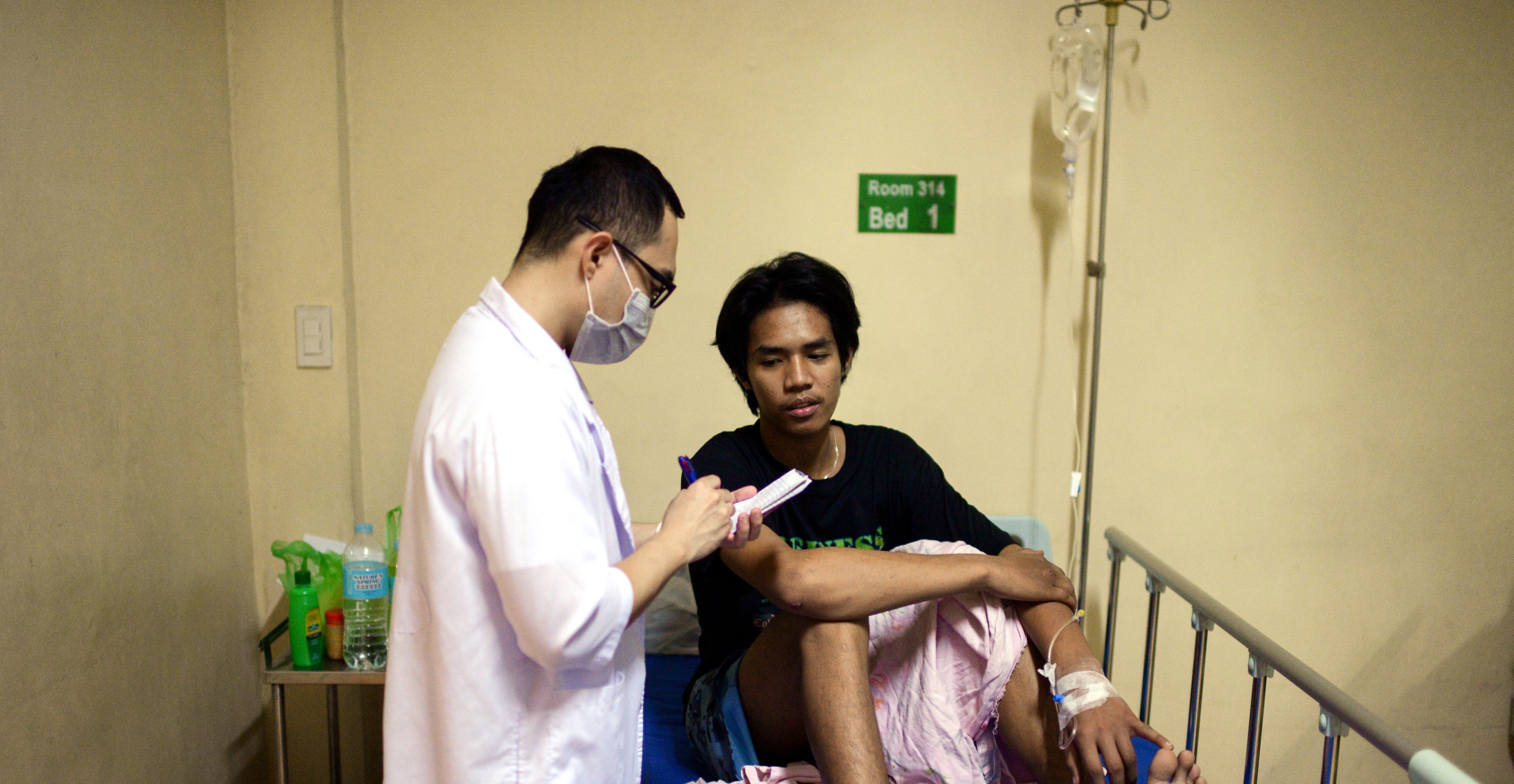COVID-19: What you need to know about the coronavirus pandemic on 20 May

Students wearing protective face masks keep social distancing as they arrive a francophone primary school during its reopening in Jumet, as a small part of Belgian children head back to their schools with new rules and social distancing measures, during the outbreak of the coronavirus disease (COVID-19), in Jumet, Belgium, May 18, 2020. Image: REUTERS/Yves Herman
- This daily roundup brings you a selection of the latest news updates on the COVID-19 coronavirus pandemic, as well as tips and tools to help you stay informed and protected.
- Today's top stories: France looks to localize mask making; Cambridge will hold lectures online next year.
What is the World Economic Forum doing about the coronavirus outbreak?
1. How COVID-19 is impacting the globe
- Confirmed coronavirus cases have reached 4.9 million worldwide, according to Johns Hopkins University. More than 322,000 people have died from the virus, while over 1.7 million have recovered.
- France puts in an order for 1 billion masks from local makers.
- British workers will be asked to help with summer harvest.
- Cambridge will hold lectures online next year.
- A cyclone moving toward India could threaten the country's COVID-19 response.
An economic model shaped like a doughnut is being embraced by Amsterdam as a way to help both people and the planet thrive.
The model, developed by Kate Raworth, a senior research associate at Oxford University’s Environmental Change Institute, is a way of achieving societal goals and thinking about economics based on the priorities set out by the United Nations Sustainable Development Goals.
Those in the middle of the doughnut fall short of life's essentials while those in the ring around that centre occupy a sweet spot where the Earth's resources aren't exploited. Everything outside the doughnut overburdens the planet.
Such sustainable models have never been more important, said Raworth. "As we all start thinking about how we will emerge from this crisis, let us seek to be holistic in how we reimagine and recreate the local-to-global futures of the places we live,” she says.
A new antibody test has been approved by the UK after an independent evaluation showed it had a high degree of accuracy and specificity. The test can pinpoint COVID-19 antibodies thanks to a "specificity greater than 99.8% and sensitivity of 100%”. The test, developed by Roche, is one of a number approved for use around the globe.
Antibody tests check blood for certain proteins produced by our bodies’ immune systems. These tests have been identified by a number of countries as a way to tackle the spread of the virus and loosen lockdowns since they can show who has been exposed to the disease.
4. COVID-19 computer game teaches children importance of social distancing
A new computer game called "Can You Save the World?" was designed to help children better understand social distancing, according to Reuters.
The game was designed by university psychology professor, Richard Wiseman, and involves players navigating a busy street to avoid pedestrians, cyclists and people sneezing. "There's quite a lot of research showing that if you get people - kids in particular - to behave in certain ways in video games it really does transfer to real life," Wiseman said.
Don't miss any update on this topic
Create a free account and access your personalized content collection with our latest publications and analyses.
License and Republishing
World Economic Forum articles may be republished in accordance with the Creative Commons Attribution-NonCommercial-NoDerivatives 4.0 International Public License, and in accordance with our Terms of Use.
The views expressed in this article are those of the author alone and not the World Economic Forum.
Stay up to date:
COVID-19
Forum Stories newsletter
Bringing you weekly curated insights and analysis on the global issues that matter.
More on Health and Healthcare SystemsSee all
Judith Love
November 18, 2025






